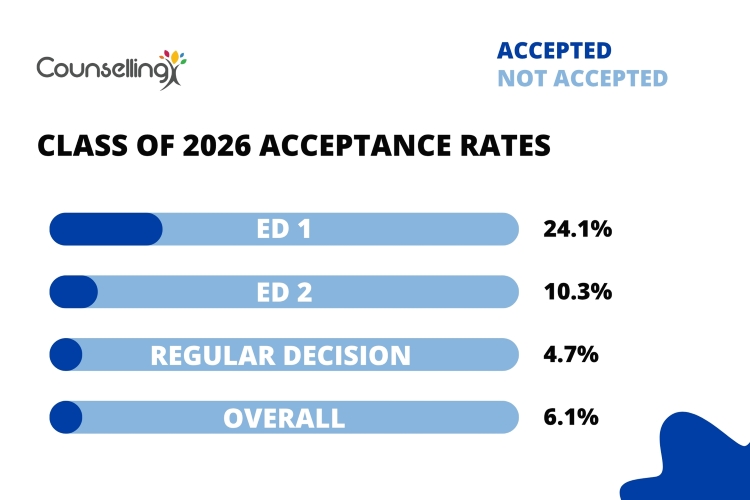Tips for a Successful Summer Programme Abroad
 Follow the tips given below to be well-prepared for your trip.
Follow the tips given below to be well-prepared for your trip.
1. Begin Your Research
If you want to apply for a summer programme abroad, you must begin by doing your research. You can make the most of your summer programme abroad with keen research. Here is what you can do to collect all the necessary information:- Read articles about different summer programmes and the environment of your host country
- Watch YouTube videos regarding the country and programmes you prefer
- Look up news regarding the country and its security.
- What resources do you need?
- What budget will you need to live and study during the programme?
- Reading student reviews about the programme
- Conversing with alums of the summer study abroad programme
- Reach out to counsellors who are familiar with the programmes.
2. Be Mindful When Packing
Once your research is done and you have decided on your destination, you can begin working on your packing checklist for your stay during the summer. Here is everything you need to consider while packing:- The weather of the destination city?
- The variety of clothes required for the stay, i.e., casual, semi-formal, formal, etc.
- The range of climate conditions, i.e., if it gets cold during the night and hot during the day.
- The culture of the country you are visiting.
- Prescriptions
- Documentations
- Photocopies of important documents
- Phone chargers
- Power Adapters
- Necessary cosmetics
- Favourite snacks
3. Prepare Necessary Documents
Documentation that you should have by the time of your departure are:- Valid passport
- Student visa
- International student card
- Proof of vaccination for travelling and studying abroad.
4. Participate in the Orientation Process
To be well-prepared, you must participate in both the pre-departure and on-site orientation processes. If you are travelling abroad for the first time, the pre-departure orientations can help you understand everything that is required of you. During the orientation process, you should not only listen but also ask questions if you have any. Doing so will allow you to sort through your confusion and be clear-headed.5. Budget Your Stay
Studying in a foreign country is an unmatched experience. However, you pay for these experiences financially. Be wise and start saving to meet your budget for the duration of your programme. If your finances are suffering, you can also start a fundraiser for your expenses to reduce your financial burden. Once you have outlined your budget for the trip, you can make arrangements for your credit or debit card. Note that your home country's debit or credit cards might not work. Hence, make sure you get a card that you can use abroad. Furthermore, be mindful of the transactions you will need to make and the ATM fee you are applying for. Here is what you can do to finance your stay:- Try to get financial aid, grants, or scholarships
- Apply for national, state, or university-level scholarships
6. Get Vaccinated
Prioritising your health is a requirement. Before your departure is due, get your required vaccinations updated. By doing so, you will not only be taking all the precautions but also fulfilling the travelling requirements. In case of incomplete or no vaccination, you might face travelling restrictions, and no one wants that. Not only that, your vaccination will also prevent you from falling sick when exposed to germs and bacteria abroad. Hence, no missed classes or adventures. You will be able to make the most of your experience!7. Buy a Phone Plan
The next thing you need to arrange is a phone plan. While abroad, you will obviously need to talk to your family and friends back home. Rather than spending hundreds of dollars on phone bills, you have to be wise and buy an international phone plan. You can do this by:- Buy the plan from your provider
- Get a local SIM card
- Call minutes
- Text messages
- Mobile data
8. Use Online Resources
Most of the online travel resources are very accessible and easy to use. Utilise these resources for your benefit and have a successful summer programme abroad. Some online resources you should use are:- Apps
- Websites
- Blogs
- News sources.
9. Explore and Experience
Your summer study programme abroad should not only be about studying! It is your chance to gain international experiences and indulge in adventurous activities. The programme generally lasts for two to three months. That is all the time you have to explore a different country! Go for sightseeing and celebrate your life. Do not miss out on activities around and outside the city. Since a summer programme is shorter than a regular semester, you must be careful and wisely manage your adventures. Feel free to make a list of everything you want to do and then indulge yourself.10. Experience the Local Life
Once you have your classes and exploring sorted, you can begin including yourself in the host country's local activities and culture. You can involve yourself by:- Trying out new cuisines
- Participating in local activities like visiting pubs for football matches
- Learning a local language
11. Learn New Things
Opportunities like these are not readily available. Hence, you should make the most out of the time you get. Something you should definitely do when abroad for a summer study programme is to try learning new skills. Target skills that you would not otherwise have the chance to learn. Some of these skills can be:- Learning a local language
- Working on a new skill
- Creating local art
- Cooking local cuisine.
12. Document Your Experiences
During your stay, try to document everything you want to remember. Either have a camera or a journal by your side throughout the duration of three months. Using these tools will help you save your experiences as memories. All the unique experiences you document during your time abroad will help you share them with your friends and family back home. You might consider the mantra “just live in the moment,” but you will not be doing yourself a favour. Strike a balance between living in the moment and living behind your camera. Save all your beautiful memories by:- Clicking a lot of pictures
- Recording vlogs or short videos
- Keeping a scrapbook for memories
- Writing a journal throughout your stay.
How to Go Abroad For Summer Study Programmes?
Most students who have yet to get a chance to study abroad full-time tend to apply for summer programmes instead. By doing so, they experience an international environment with students worldwide for a few weeks. Programmes of this nature, hence, enhance their exposure both academically and personally. However, just like getting into an international university, applying for summer programmes is essential, too. Students have to select the programme that suits them best and the scholarships they can take alongside applying for the chosen programme and scholarships. Managing all these things simultaneously can kill the joy of studying abroad during the summer. Some students might even drop the idea because of the time and effort it takes. CounsellingX, as a counselling platform, brings you the solution. Through the platform, you can access highly qualified counsellors from top institutions with unmatched expertise. All you need to do is:- See how the platform works
- Sign up
- Find a counsellor you prefer
- Contact them for a free consultation.
Conclusion
Going abroad for a summer programme does not mean keeping your head in the books and making it all about the school. The opportunity is all about growth in all aspects of your life. You will have a chance to indulge in a completely different culture, expose yourself to a new language, and taste different cuisines and flavours. After your classes, you will have all the time to yourself. Utilise this free time to explore new places and wander around. Actively participate in fun activities and work on your professional and personal network. What more would you need when you can also start a new hobby and learn new skills as you like? Take up the opportunities you have and start studying abroad during the summer.Key Takeaways
- Begin by researching different summer programmes and the environment of your host country through articles, YouTube videos, and news sources.
- Learn about the resources needed, budget requirements, and programme details by reading student reviews, talking to alums, and consulting counsellors.
- Consider the destination's weather, cultural norms, and required documents when packing. Include essentials like prescriptions, documents, chargers, adapters, and favourite snacks.
- To prevent travel issues, ensure you have a valid passport, student visa, international student card, and proof of vaccination. Avoid using an old passport.
- Attend pre-departure and on-site orientation sessions to understand programme expectations and ask questions for clarity.
- Plan and save for your trip, explore financial aid options, and arrange a suitable credit or debit card for transactions abroad.
- Prioritise your health by updating required vaccinations before departure to meet travel requirements and prevent illness abroad.
- Purchase an international phone plan or local SIM card to stay connected without paying high roaming charges.
- Explore travel apps, websites, blogs, and news sources for trip planning, navigation, and cultural insights.
- Enjoy your summer abroad by sightseeing, trying local cuisine, and participating in cultural activities and adventures.
- Practising the language, engaging in local activities, and embracing cultural norms can help you learn more about the host country's culture.
- Learn new skills, such as language, cooking, or art, unique to the host country's culture.
- Capture memories through photos, videos, vlogs, or journals to share your experiences and preserve them for future reflection.











